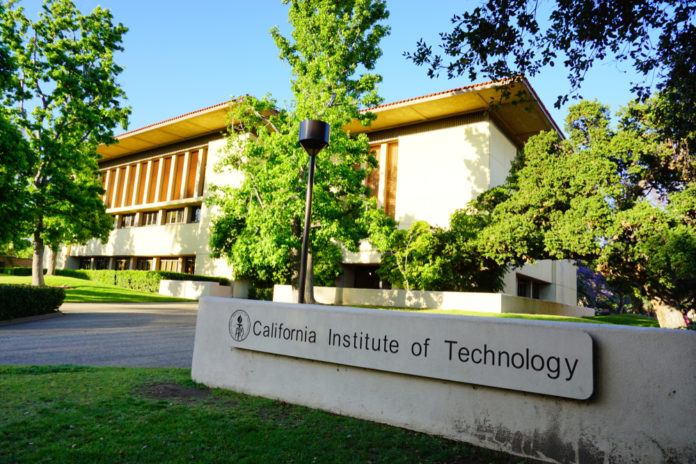The district court granted the defendants’ motion for summary judgment in a qui tam case alleging fraud on Department of Energy cooperative agreements. The relator alleged that the defendants improperly held back funds from one project in order to use them for a second project, and had failed to disclose conflicts of interest between the project and the outside employment of several senior project leaders. However, the evidence showed that the defendants had disclosed their use of funds to DOE and that DOE had approved their actions. The court also found that DOE had approved the participation of several senior project leaders after being informed of the potential conflicts of interest. The court also granted summary judgment on a count of employment retaliation. While the relator showed that the loss of the opportunity to oversee an important seminar series could be considered an adverse employment action, the court found that the defendants had a legitimate reason for the change and that the relator had not adequately argued that the reasoning was pretextual.
Defendants California Institute of Technology, Dr. Harry A. Atwater, Dr. Edward M. Stolper, and Dr. Jacqueline K. Barton moved for summary judgment in a qui tam case alleging fraud on federal cooperative agreements and unlawful employment retaliation.
The relator and the three individual defendants each worked for Caltech as professors and subject matter experts in various scientific fields. The relator’s allegations involve Caltech’s work as lead research institution on Department of Energy funded projects at DOE’s innovation hub, the Joint Center for Artificial Photosynthesis. When the two projects were awarded, DOE expressly stated that funding had been appropriated separately and that funds allocated to one project could not be spent on the other.
The relator initially served as the director of the JCAP 1 project, but was later demoted to scientific director and project leader. Dr. Atwater was later appointed director of JCAP 1 and then to JCAP 2. The relator alleged that after Atwater was assigned to lead the project, the defendants began breaching the terms of their cooperative agreement with DOE.
Lewis alleged that Atwater froze hiring on JCAP 1, which resulted in an accumulation of $5.5 million in excess funds, which he then improperly used for JCAP 2. Lewis also alleged that Atwater used project funds to pursue work that benefitted Alta Devices, a company owned by Atwater, and that Alta Devices and Caltech entered into a licensing agreement that returns funds to both Caltech and Atwater. Further, according to Lewis’ complaint, Atwater billed unallowable travel costs to the JCAP 1 and JCAP 2 projects; misclassified equipment purchases to obtain reimbursement from the government, even though the equipment was not used for either JCAP project; improperly shifted funds among JCAP 1 projects; falsified financial statements; and made material misrepresentations in the course of securing JCAP 1 and JCAP 2 funding.
Lewis also alleged defendant Barton failed to recuse herself from conflicts of interest and in fact, steered funding to perform work that would provide personal and/or institutional financial benefit. Specifically, Lewis asserted that Barton steered funds from JCAP 1 to JCAP 2 to benefit Dow Chemical, where she has a seat on the board of directors. Further, funds diverted to Alta Devices also supported Dow, which owns a stake in Alta.
Finally, the relator alleged that Dr. Stolper, as Caltech’s provost, knowingly, falsely, and/or intentionally diverted, cross-billed, and misallocated congressionally appropriated federal funds to support unapproved and unauthorized research projects. Lewis also alleged Stolper failed to disclose his own conflicts of interest.
The relator also alleged Caltech engaged in retaliatory actions after he raised his concerns. Lewis alleged he was told to cease asking questions about funding improprieties, was removed from his role overseeing a seminar series, and was subjected to a hostile work environment.
In his complaint, the relator alleged that Caltech violated the FCA by submitting claims for reimbursement that falsely certified; (1) that Caltech’s reported costs were incurred in pursuit of the contractually approved JCAP 1 and JCAP 2 project plans; and (2) that at the time when Caltech’s claims were submitted, Caltech was in compliance with the material terms and conditions of the JCAP cooperative agreement.
Specifically, the relator alleged that Caltech’s requests for reimbursement were false under an implied false certification theory because Caltech failed to disclose its noncompliance with cooperative agreement’s change control and conflict of interest provisions. He also argued that the claims were expressly false because the forms that Caltech submitted to DOE affirmatively certified that Caltech sought reimbursement for the purposes and intent set forth in the award documents.
The defendants moved for summary judgement, arguing that the relator failed to establish materiality or scienter. First, the defendants submitted evidence that DOE knew of and approved the conduct which the relator alleged breached the change provisions of the cooperative agreements. The defendants brought a DOE official who testified that Caltech’s allocation and use of the carryover funds from JCAP 1 to JCAP 2 were not subject to the change controls in the cooperative agreement. The official testified that it was not unusual for a large research project to carry over significant funds at the end of the first award period.
The court found this evidence compelling, and noted that DOE continued to pay Caltech’s claims with full knowledge of Caltech’s conduct. The court found the relator failed to raise any genuine dispute of fact as to this evidence, noting that Caltech submitted quarterly reports regarding the anticipated carryover funds, discussed those funds with DOE, and submitted a statement explaining how it would use the funds. The court also found that DOE had expressly informed Caltech that it could use carryover funds for JCAP 2 work and continued to fund JCAP even though Caltech did not separately submit a formal change control request. DOE’s knowledge of and approval of Caltech’s actions severely undercut the relator’s allegations.
The defendants also submitted evidence that DOE knew of the conflicts of interest addressed in the complaint, understood that Barton and Atwater would continue to be involved in JCAP, and yet made no changes to its funding decisions. For example, while DOE ordered Barton off the JCAP board, it did not object to her involvement in the projects as chair of the Division of Chemistry and Engineering. Further, DOE twice approved Barton to serve on the JCAP 2 governance board, while on notice that Barton was still a member of Dow Chemicals’ board of directors. The court found this evidence undercut the question of materiality. The court also found that DOE approved Atwater’s involvement, despite its knowledge that he co-founded Alta Devices.
Finally, the court noted that DOE continued to fund JCAP even after learning of the relator’s allegations, had not requested any reimbursements, and had expanded its work with Caltech. While not dispositive of a lack of materiality in all cases, in this instance the court found the agency’s continued payment of claims to be strong evidence that the alleged misconduct, even if true, was not material to payment decisions. Combined with the testimony of the DOE official, the court found no basis to conclude that the alleged misrepresentations were material.
The relator argued that the government’s continued funding of JCAP after the lawsuit was filed was irrelevant to the materiality analysis because there was no evidence the government had actual knowledge. The relator pointed to the testimony of the DOE official, arguing that his statements demonstrated that DOE did not know that Caltech made unilateral changes during the JCAP 1 project period without complying with the change controls, and would have acted had it been aware of such a breach.
However, the court found this argument unavailing. First, the court noted that the deposition testimony cited by the relator was entirely speculative. While stating generally that DOE expects Caltech to comply with the terms of the cooperative agreement, the witness did not raise a triable issue of fact as to the government’s knowledge or assessment of the particular conduct at issue. Second, the court found the relator ignored the substantial, uncontroverted evidence demonstrating that DOE was aware of each of the actions the relator alleged were improper and approved of them. The court also reiterated that the government’s continued funding was relevant.
Because Caltech showed that it had made repeated disclosures to DOE regarding the conduct alleged in the complaint, and that DOE approved of the actions, the court found the relator had not demonstrated scienter. Accordingly, the court granted summary judgment in favor of the defendants on all FCA claims.
Next, the court turned to the retaliation claim. The relator alleged that Caltech retaliated against him by removing him from his position overseeing an important seminar series. In response, Caltech conceded that the relator engaged in protected activity and that Caltech was aware of it. However, it argued that it had not altered the relator’s salary, benefits, or job title. Caltech also offered a non-retaliatory reason for the change in the relator’s responsibilities.
The court partially sided with the relator, finding that his removal from overseeing the seminar series could be considered an adverse action. The relator argued that this roll allowed him to meet with prominent thought leaders in the field of sustainable energy. The court agreed that the loss of this and related opportunities could be considered an adverse employment action. While not substantial, it was sufficient to show a prima facie case of retaliation.
However, the court found Caltech had put forth a credible, non-retaliatory reason for the change in the relator’s responsibilities. The defendants argued that Dr. Barton had determined that the relator would not continue overseeing the seminar series: (a) because the relator’s initial three-year term of overseeing the seminar series had expired, and (b) because the relator had failed to regularly hold the seminar series during his term, which had raised concerns from the sponsoring donor.
Caltech presented evidence showing that Lewis was intended to oversee the program for a period of three years ending in September 2016. When that period ended, the responsibility was shifted to another employee. The defendants also presented emails from one of the sponsors, in which she raised concerns about the frequency of the seminars and a lack of communication. The court found that a failure to fulfill certain job duties was a legitimate, non-retaliatory reason for Caltech to decline to renew Lewis’ tenure overseeing the seminar series.
The court also found the relator had not demonstrated that this reasoning was pretextual. In response to the defendants’ arguments, the relator stated that Caltech had not held any seminars during the remainder of the calendar year after removing him from his oversight position. However, the court found that this single statement was not enough to undermine the legitimacy of the defendant’s reasoning. Further, the court noted that only four months remained in the year after the relator’s tenure was not renewed. Because the relator failed to rebut the defendants’ legitimate reasons for altering his job responsibilities, the court also granted summary judgment in the defendants’ favor on this count.





